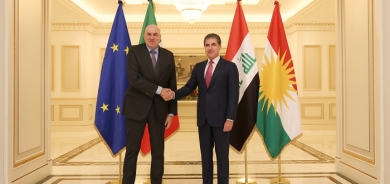U.S. State Department Report Highlights Widespread Religious Restrictions in Federal Iraq

A United States State Department report released on Wednesday reveals that religious minorities in federal Iraq continued to face extensive restrictions in 2023. The annual report, titled the "2023 Report on International Religious Freedom in Iraq," emphasizes ongoing illegal detentions, physical abuse, and demographic reductions of religious minorities by both government forces and other armed groups outside the Iraqi Kurdistan Region.
The report states, “There were credible reports that government forces, including the Federal Police, the National Security Service (NSS), and the PMF [Popular Mobilization Forces], abused and tortured individuals - particularly Sunni Arabs - during arrest, pretrial detention, and after conviction.” It further notes that Sunni Arabs constitute around 90 percent of all prisoners in Iraq, with 9,000 of them having received death sentences.
Additionally, the report accuses state-linked PMF brigades of reducing Christian demographics in the Nineveh Plains by assisting the predominantly Shiite Shabaks in seizing at least three Christian properties in 2023. It also highlights federal authorities' continued pressure on Christian families, requiring them to register their children as Muslims or leave them undocumented. Furthermore, the religion of unrecognized religious groups such as Zoroastrians, Kakais, and Bahais continued to be listed as “Islam” on identification documents.
Iraq’s Christian community has significantly dwindled over the past two decades. The 2003 US-led invasion and subsequent sectarian warfare, along with the 2014 ISIS attacks, caused many followers of Iraq’s various Christian denominations to flee. The State Department estimates fewer than 150,000 Christians remain in Iraq, a stark decline from the 1.5 million estimated in 2003.
The report also mentions alleged demographic changes in Shingal (Sinjar), where Iran-backed forces are accused of purchasing properties belonging to Yazidis and Sunni Arabs. The Yazidi community, which faced severe atrocities including forced marriages, sexual violence, and massacres during ISIS’s 2014 capture of Shingal, continues to suffer. The dire security situation in Shingal, characterized by clashes between the Iraqi army and the Shingal Resistance Units (YBS), an all-Yazidi militia affiliated with the PKK, along with a significant PMF presence, hinders the return of displaced Yazidis.
The report concludes by noting the myriad challenges faced by Yazidis in returning to Shingal, including poor infrastructure, lack of empowered local governance, and the presence of Iran-aligned militia groups and the PKK.













